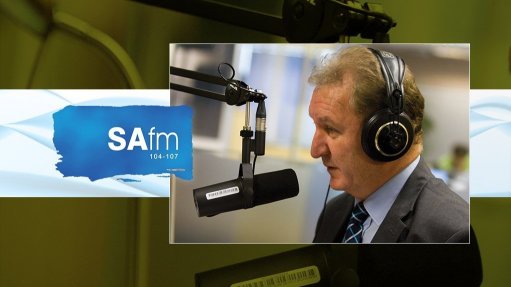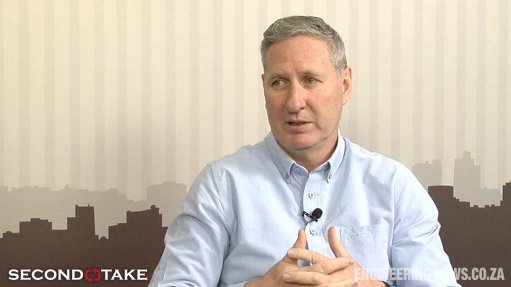Panel ponders considerations, challenges of adapting personal income tax, fiscal system
While progressive reforms have been made to South Africa’s personal income tax (PIT) system since the advent of democracy, the potential to bolster this further with the aim of increasing revenue collection and income redistribution entails several considerations.
This was outlined by speakers during the third in a series of Southern Africa-Towards Inclusive Economic Development policy dialogues, titled ‘Smart Taxation: Raising Revenue and Reducing Inequality in South Africa’.
Speakers emphasised the importance of policymakers understanding behavioural responses to tax changes, as their responses would impact on the amount of revenue that was collected.
For example, National Treasury tax and financial sector policy acting head Christopher Axelson explained that, previously, when there were increases in PIT, this did not have the desired effect of raising tax revenue.
Instead, he said, many taxpayers in this bracket reacted by not declaring their income fully and properly to the South African Revenue Service (Sars), such as by understating their bonuses, so that they could pay less in income tax.
Sars taxpayer engagement and operations deputy commissioner Nqobani Johnstone Makhubu also mentioned the importance of Sars tightening up its processes to mitigate this, to ensure that there was proper enforcement and compliance.
Speakers also stressed that PIT should not be considered in isolation, but rather, the entire tax system should be viewed as a whole and changes should be made where necessary.
Also, Sars must have the requisite capacity to administer such changes.
Speakers also highlighted PIT as an important tool for redistribution. Stellenbosch University Faculty of Economic and Management Sciences dean and Economics Professor Ingrid Woolard said that, without this, the Gini coefficient in the country would be much higher, which showed how important it was.
However, she said more work needed to be done to enhance this, with many taxpayers not seeing the value of the system and not feeling that their money is being spent properly.
Speakers said PIT also needed to be thought of as part of the social contract between the State and citizen, and therefore, it had an important role to play in State building.
Speakers also deliberated on the option of increasing the taxpayer base in the country. While they acknowledged that everyone does pay tax through value-added tax, they pointed out that a large percentage of the population still did not pay income tax because they fell under the current minimum requirements.
Therefore, there were questions about whether it would be feasible to change this, to increase the taxpayer base. Speakers posited that this could result in people becoming more involved and invested in the country, given that income tax was one of the most direct forms of taxes.
Southern African Social Policy Research Insights co-executive director Gemma Wright said South Africa could therefore explore increasing the progressivity of PIT, along with also making a difference at the bottom end of the system.
Makhubu also stressed the need to explore options over and above these evident ones alluded to, such as processes to ensure that those that were operating illicitly and outside of the tax systems were brought to task and started contributing taxes as well.
Office of the Tax Ombud tax ombud Yanga Mputa said that while there had been progress, there were still biases in the fiscal system that needed to be addressed. For example, she said that benefits such as medical credits and retirement benefits tended to favour males, given that more of them were formally employed and tended to earn higher than women, who were often in the informal economy and had to take care of their families and could not access these, she averred.
Mputa also said that for compliance to be improved, there must be improved information and education for taxpayers, which was lacking.
Ernst and Young Africa tax lead Ekow Eghan said there must be input from all stakeholders when exploring changes.
He also said the question of whether the system was already effective enough, and if it actually did require any changes, needed to be asked.
Comments
Press Office
Announcements
What's On
Subscribe to improve your user experience...
Option 1 (equivalent of R125 a month):
Receive a weekly copy of Creamer Media's Engineering News & Mining Weekly magazine
(print copy for those in South Africa and e-magazine for those outside of South Africa)
Receive daily email newsletters
Access to full search results
Access archive of magazine back copies
Access to Projects in Progress
Access to ONE Research Report of your choice in PDF format
Option 2 (equivalent of R375 a month):
All benefits from Option 1
PLUS
Access to Creamer Media's Research Channel Africa for ALL Research Reports, in PDF format, on various industrial and mining sectors
including Electricity; Water; Energy Transition; Hydrogen; Roads, Rail and Ports; Coal; Gold; Platinum; Battery Metals; etc.
Already a subscriber?
Forgotten your password?
Receive weekly copy of Creamer Media's Engineering News & Mining Weekly magazine (print copy for those in South Africa and e-magazine for those outside of South Africa)
➕
Recieve daily email newsletters
➕
Access to full search results
➕
Access archive of magazine back copies
➕
Access to Projects in Progress
➕
Access to ONE Research Report of your choice in PDF format
RESEARCH CHANNEL AFRICA
R4500 (equivalent of R375 a month)
SUBSCRIBEAll benefits from Option 1
➕
Access to Creamer Media's Research Channel Africa for ALL Research Reports on various industrial and mining sectors, in PDF format, including on:
Electricity
➕
Water
➕
Energy Transition
➕
Hydrogen
➕
Roads, Rail and Ports
➕
Coal
➕
Gold
➕
Platinum
➕
Battery Metals
➕
etc.
Receive all benefits from Option 1 or Option 2 delivered to numerous people at your company
➕
Multiple User names and Passwords for simultaneous log-ins
➕
Intranet integration access to all in your organisation

















